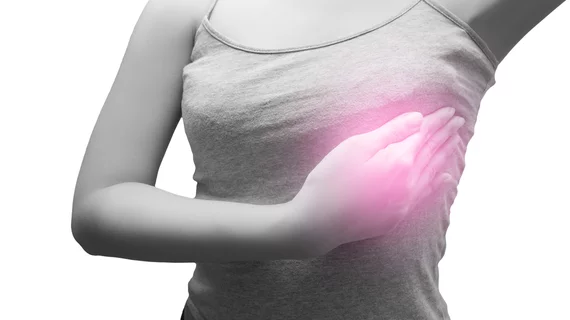Artificial intelligence bolsters breast cancer risk prediction
Swedish scientists have developed a sophisticated new artificial intelligence model that may greatly improve radiologists’ ability to predict breast cancer risk when compared to traditional methods.
This deep neural network was able to extract vast amounts of data from images, and deduce a higher cancer risk association when compared to even the best mammographic breast density model. It produced a lower false negative rate, too, and is only expected to grow smarter as it’s fed more images, researchers noted in their study, published Tuesday, Dec. 17, in Radiology.
“The deep neural network overall was better than density-based models,” lead author Karin Dembrower, MD, a breast radiologist and PhD candidate with the Karolinska Institute in Stockholm, Sweden, said in a statement. “And it did not have the same bias as the density-based model. Its predictive accuracy was not negatively affected by more aggressive cancer subtypes.”
Breast density is a key risk factor for cancer risk and yet most prediction models fail to take advantage of such information derived from mammograms, researchers noted. Often, this data can help to determine which patients would benefit from a follow-up MRI, alleviating potential anxiety for women who do not end up requiring more imaging exams.
To help address this gap, Dembrower and colleagues trained the AI program using mammographic images from nearly 2,300 women, gathered between 2008 and 2012. Out of the entire sample from Karolinska University Hospital, 278 individuals were later diagnosed with cancer. They found that the model excelled when compared to more traditional, one-size-fits-all analyses that are conducted every year or biennially.
The team next plans to further train the network with more images, and begin testing it in a clinical setting in 2020.

